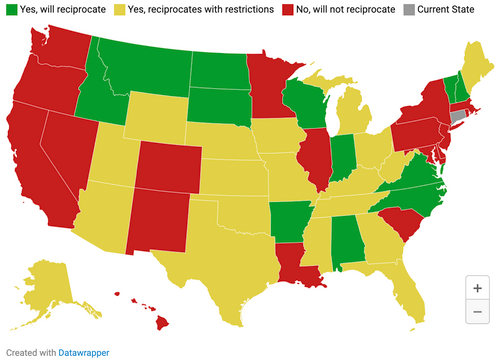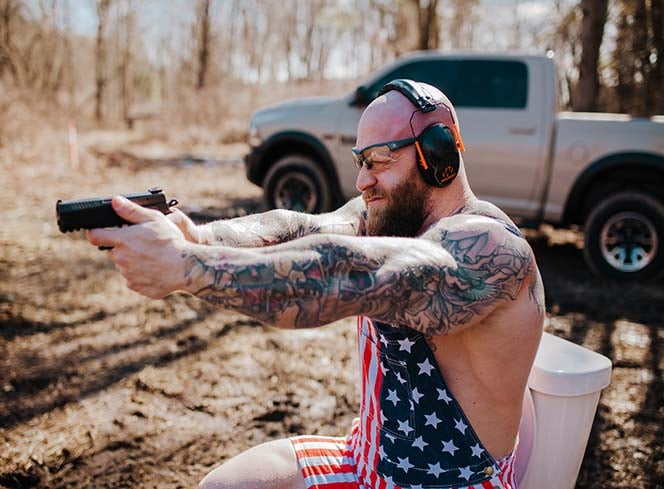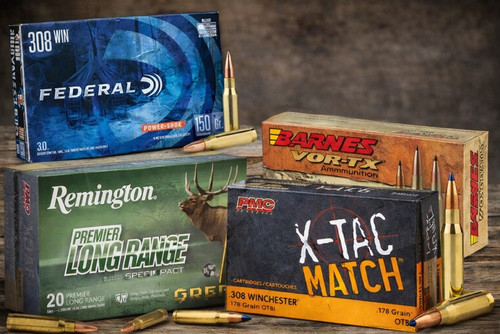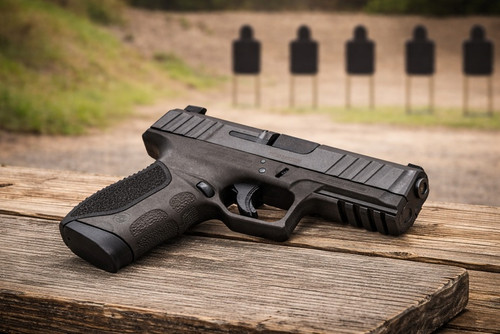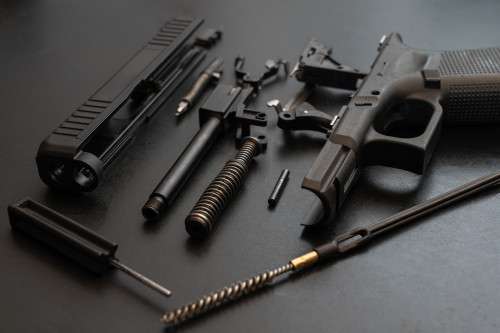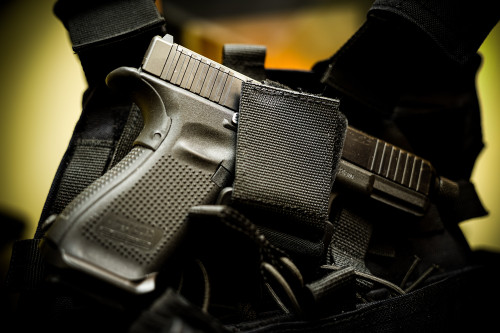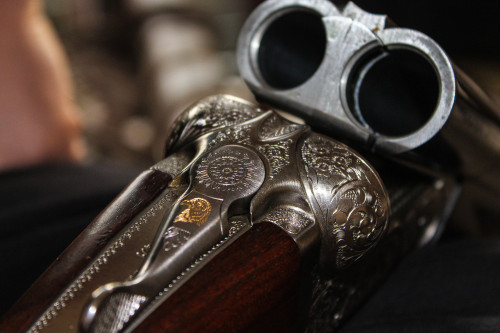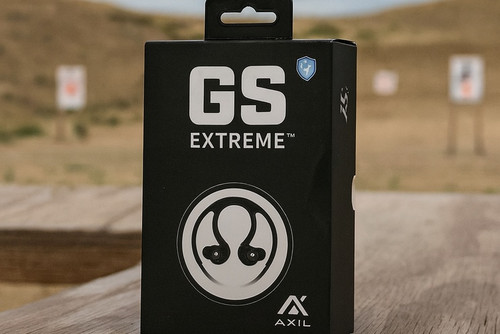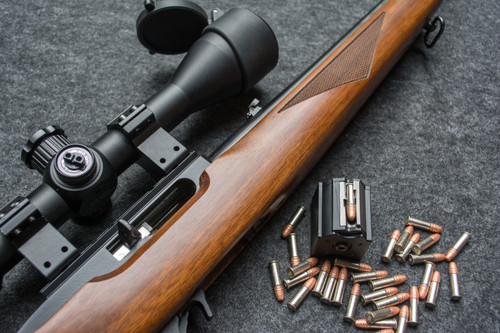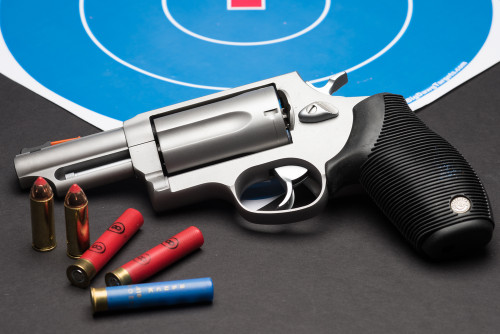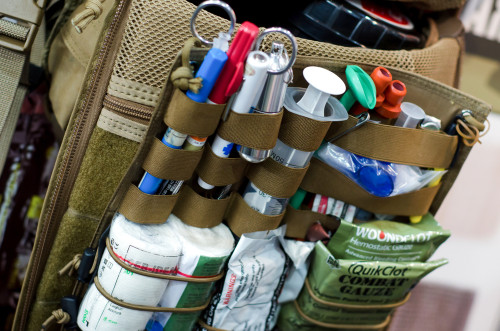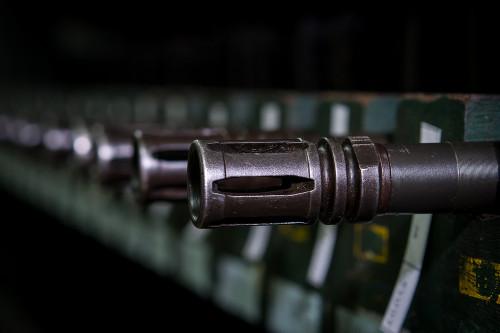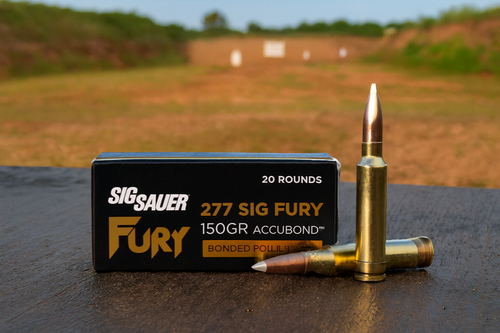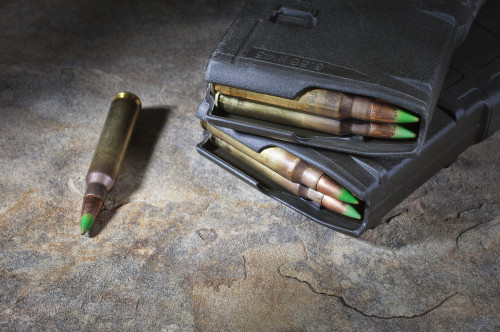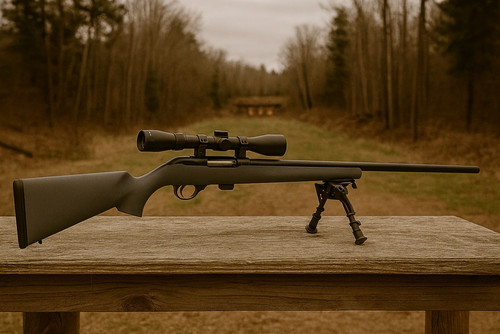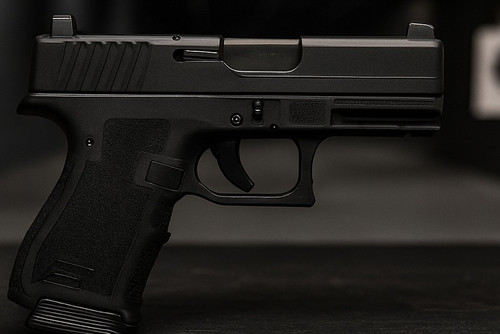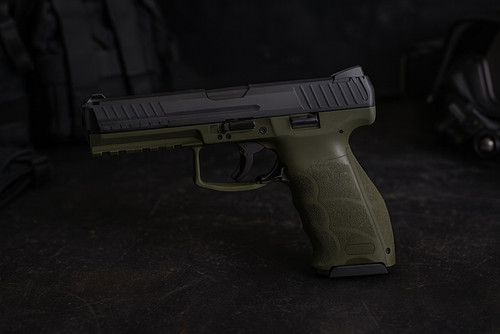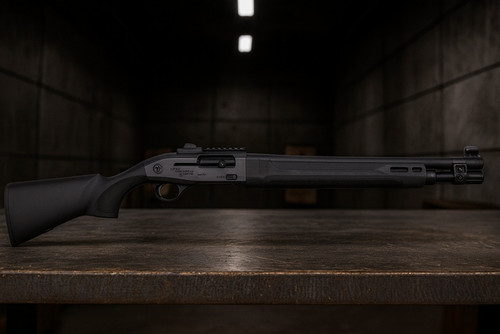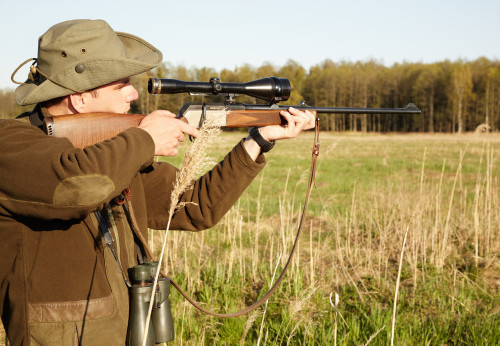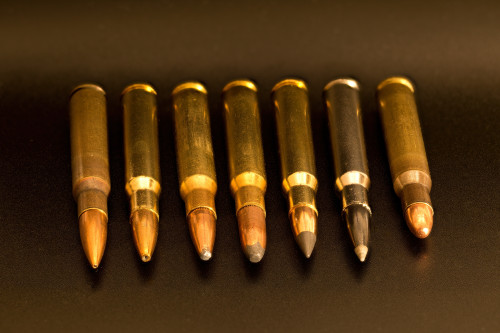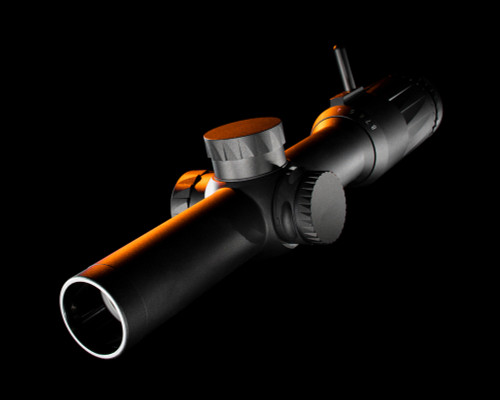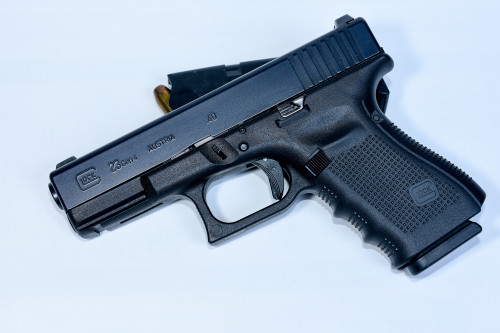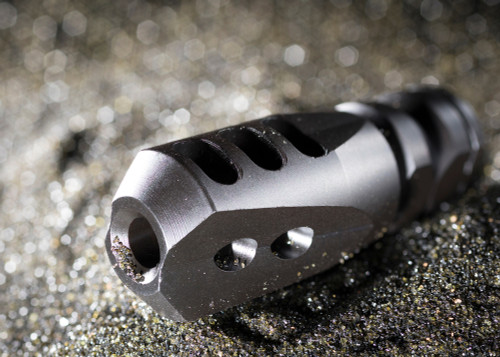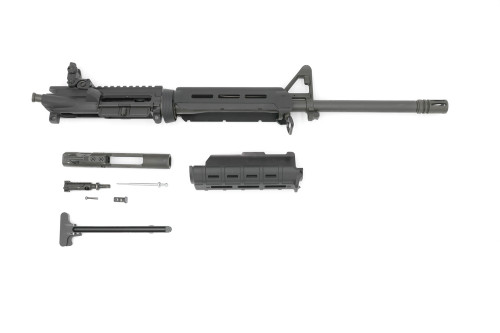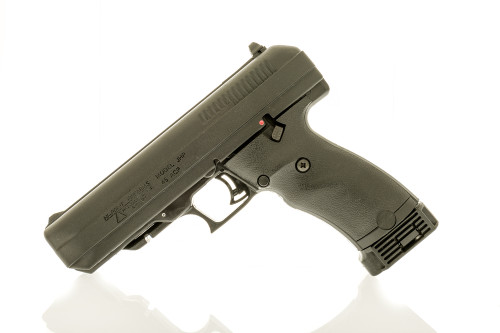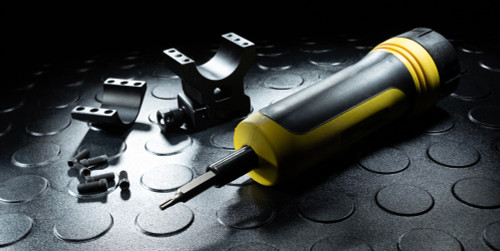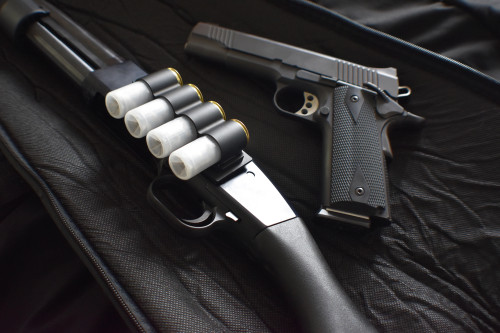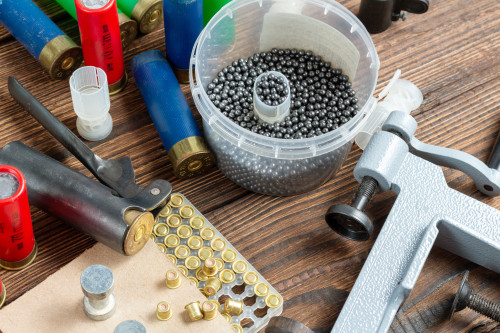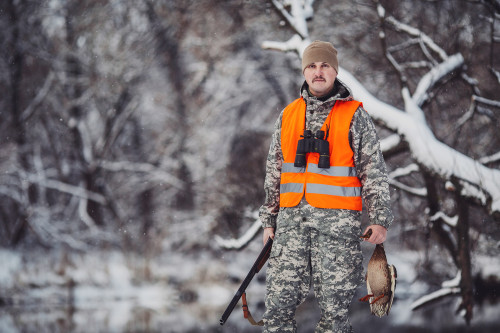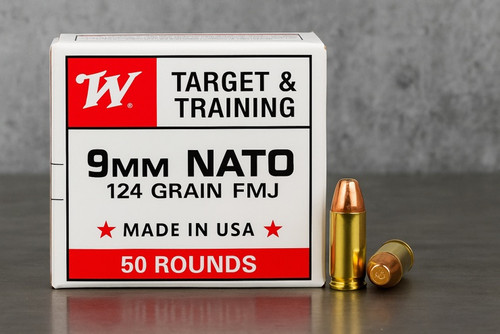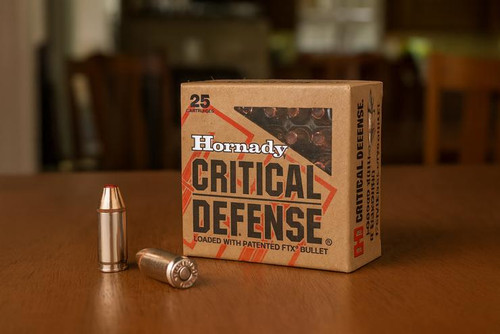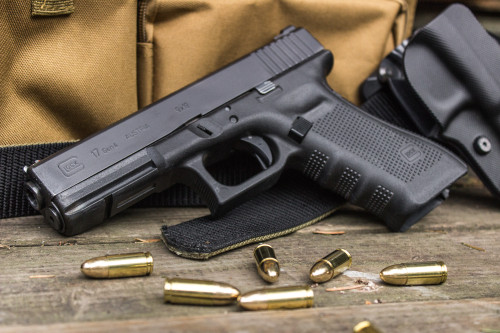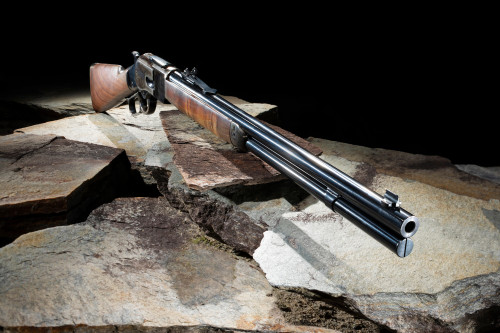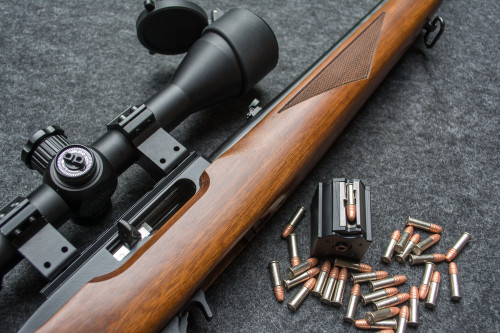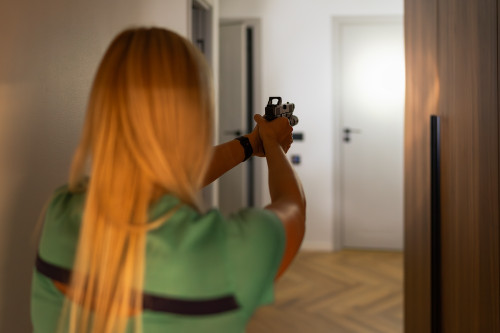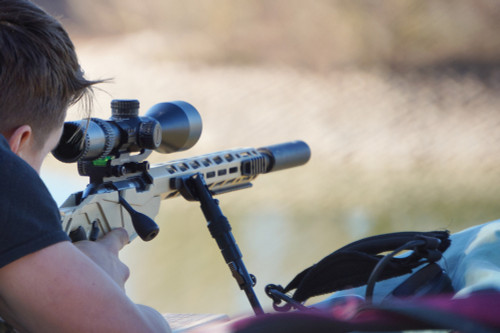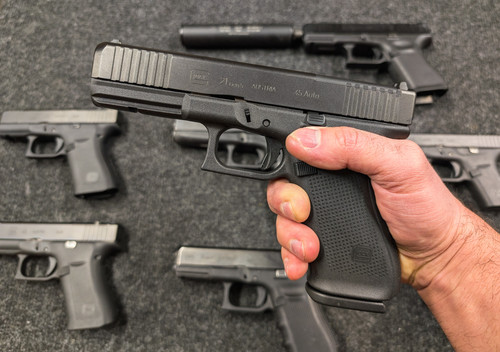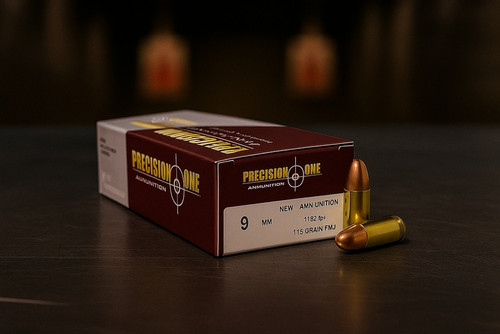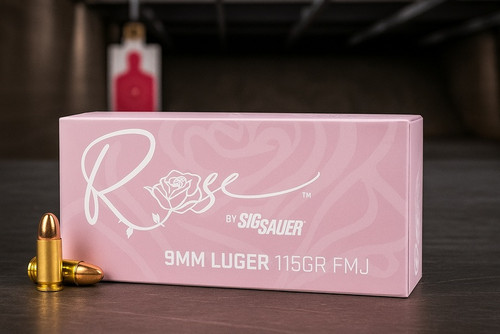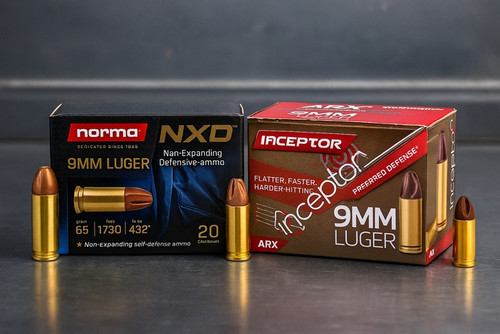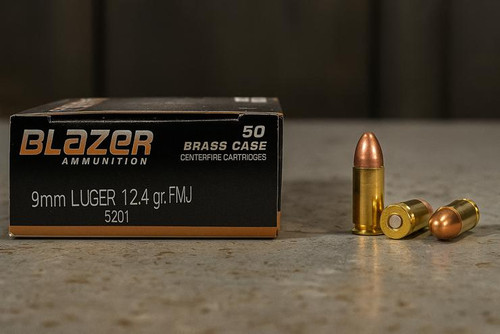Connecticut concealed carry laws are some of the strictest in the country. Despite being a mostly rural state, concealed carry laws in Connecticut are similar to those in states with major metropolitan areas such as Illinois, New York, and California. In other words, it isn’t so friendly to the Second Amendment.
But it’s still possible to be a safe, effective, and legal concealed carrier in Connecticut, when armed with the right knowledge. Before you strap on your gun, double-check rules and regulations so you don’t end up in legal hot water.
In this guide, we’ll cover everything you need to know about concealed carry in Connecticut including reciprocity with other states, how to get a license, and specific rules regarding the purchase, carry, and use of a firearm in the “Constitution State”.
Legal Disclaimer
This article doesn’t constitute legal advice. We’re communicating informally here to make this information easy to grasp without getting lost in legal mumbo jumbo. With that said, it’s the legal mumbo jumbo that will determine (in court) whether you end up in trouble.
We’ll be as accurate as we can, but for clarification, cross-check the information here with actual laws. If you have additional questions or concerns, we recommend consulting with an attorney experienced in self-defense law.
1. Quick Stats
- Number of other state permits honored in Connecticut: 0
- Number of states that honor Connecticut permits: 27
- Percentage of people licensed for concealed carry in Connecticut: 7.9%
- Number of issued licenses in Connecticut: 284,000
- Minimum age to carry a concealed firearm in Connecticut: 21
- Connecticut concealed carry license validity: 5 years
2. Connecticut Concealed Carry Overview
This section provides an overview of the concealed carry and relevant weapons laws in Connecticut.
Carry Type
Connecticut is not a constitutional carry state. Carrying a concealed handgun in Connecticut is legal but requires a special permit called a Connecticut Pistol Permit (CTPP) issued by the Connecticut Department of Emergency Services and Public Protection (DESPP).
Open carry is not legal in Connecticut (except in your home or on your property). The only legal way to carry a gun in public is concealed with a CTPP.
CT General Statute Title 29-28
CTPP Details
The CTPP is relatively difficult to obtain compared to concealed carry licenses in other states. First, you must obtain permission from local authorities, who will issue a temporary pistol permit. Local authorities include the police department, city or town hall, first selectman’s office, or state police barracks. This will vary depending on where you live.
Within 60 days of receiving your temporary pistol permit, you must contact the DESPP and apply for a CTPP.
To obtain a permit, you must be 21 years of age, complete a handgun safety course, and meet specific criminal history and mental health history requirements. Once issued, the permit is valid for 5 years. Additional details on obtaining a CTPP can be found in section 7 of this guide.
Non-residents can also qualify for a CTPP. They should apply directly to the DESPP to obtain a non-resident CTPP.
The names of CTPP holders are collected on a registry that is not publicly accessible. Of course, law enforcement has access to it. Plus, your driver’s license is linked to your CTPP, so police will be notified immediately of your CTPP status if they check your driver’s license during a traffic stop.
CT State Pistol Permit Website
Issue Type
Connecticut is a may-issue state, which means law enforcement has the right to determine whether you have a legitimate need to carry a gun. In other words, the burden is not on why you shouldn’t have a gun (as in shall-issue states), but rather on why you should have a gun.
However, court precedent has effectively made Connecticut a shall-issue state. If you meet the requirements, they must issue the license in almost all cases. Applicants do not typically need to justify their request for a CTPP.
Local Preemption
The State of Connecticut does not preempt local authority regarding concealed carry laws, so local authorities have the right to establish concealed carry regulations specific to their jurisdiction. These laws are subject to change, so keep an eye on what’s happening in your area.
Additionally, any private property can prohibit the carrying of concealed weapons as they see fit. Look for posted signs and adjust accordingly.
Red Flag Law
Connecticut has a robust red flag law. Generally, it requires two police officers or a state’s attorney to request seizure of firearms and ammunition from someone reasonably deemed a threat. If a judge agrees, a warrant will be issued to seize the guns.
Additionally, family members, social workers, healthcare workers, clergy, or any other concerned member of the community can contact the court directly about someone threatening to hurt themselves or others, possibly resulting in weapon seizures.
CT General Statute Title 29-38C
Other Weapons
The CTPP does not permit the concealed carry of weapons other than handguns. However, no laws prohibit the carry of chemical sprays, pepper sprays, or tasers for self-defense.
All types of knives can be owned legally, but those with blades longer than 4 inches are prohibited from being carried in public. Switchblades and automatic knives with a 1.5 inch blade or greater are also prohibited from public carry as well.
CT General Statute Title 53-206
Magazine Limits
Connecticut prohibits large capacity magazines that hold more than 10 rounds. Nothing stops you from carrying extra magazines, though.
CT General Statute Title 53-202W
Prohibited Ammo
Certain types of ammunition are prohibited to own in Connecticut including armor-piercing rounds and incendiary .50 caliber rounds — both of which shouldn’t matter much to concealed carriers. Any handgun round you would reasonably carry concealed is legal.
CT General Statute Title 53-202L
3. Connecticut Concealed Carry Reciprocity
Connecticut does not honor concealed carry permits from any other state. If you want to carry in Connecticut, you must obtain a CTPP.
Full Reciprocity
These states fully honor the CTPP, which means the CTPP is the same as having the concealed carry license from that state:
- Alabama
- Arkansas
- Idaho
- Indiana
- Montana
- New Hampshire
- North Carolina
- North Dakota
- South Dakota
- Vermont
- Virginia
- Wisconsin
Partial Reciprocity
These states honor the CTPP, but with some restrictions that vary by state:
- Alaska
- Arizona
- Florida
- Georgia
- Iowa
- Kansas
- Kentucky
- Maine
- Michigan
- Mississippi
- Missouri
- Nebraska
- Ohio
- Oklahoma
- Tennessee
- Texas
- Utah
- West Virginia
- Wyoming
No Reciprocity
These states do not honor the CTPP:
- California
- Colorado
- Delaware
- District of Columbia
- Hawaii
- Illinois
- Louisiana
- Maryland
- Massachusetts
- Minnesota
- Nevada
- New Jersey
- New Mexico
- New York
- Oregon
- Pennsylvania
- Rhode Island
- South Carolina
- Washington
4. Connecticut Rules for Buying a Gun
These are the key rules for buying a gun in Connecticut.
Purchase Permit
To buy a handgun, you must have a CTPP or a Temporary State Permit to Carry Pistols. You also need to complete an Application to Purchase Firearms (DPS-67-C). The seller will then obtain a sales authorization number from the DESPP to complete the transaction.
This also applies to sales at gun shows or transfers between private individuals. If you buy a gun from another person, the transaction must be facilitated by a dealer with a federal firearm license (FFL).
CT General Statute Title 29-33
Background Checks
Background checks on criminal and mental health history are required when buying a handgun in Connecticut. The DESPP completes the check at the request of the seller using the National Instant Criminal Background Check (NICB) system.
Background checks are also required for private sales and will be completed by the FFL dealer who facilitates the transaction.
CT General Statute Title 29-36G
Waiting Period
There is technically no waiting period required when buying a handgun in Connecticut, but this is really a moot point since you need a gun permit, a purchase permit, and a background check before you can acquire a gun. Obtaining all of these will require some waiting.
Registration
While Connecticut doesn’t technically require handgun registration, all handguns are effectively registered through the sales process, which includes documentation of the buyer, the seller, and the serial number of the gun.
Minimum Age for Purchase
You must be at least 21 years old to purchase a handgun in Connecticut.
Purchase Limits
You cannot buy more than 3 handguns within a 30-day period.
5. Connecticut Rules for Carrying a Gun
This is an overview of rules and laws related to carrying and possessing a firearm in Connecticut:
Basic Guidelines
As mentioned above, concealed carry is the only way to legally carry a gun in public in Connecticut. Concealed carry requires a CTPP, which you must have at all times when carrying your gun. Open carry is prohibited in public.
CT General Statute Title 29-35
Prohibited Locations
While the CTPP broadly gives you the right to carry a concealed handgun, there are a variety of situations where concealed carry is still prohibited. Remember, Connecticut does not have state-wide preemption regarding firearms, so any local authority or private property can legally enact firearm prohibitions.
Plus, these regulations can change over time. For example, the city of New London had a ban on concealed carry that has since been repealed. Always keep an eye on local regulations and watch out for “no weapons allowed” postings.
Some specific locations prohibit concealed handguns:
- State and national parks: The one exception is you’re allowed to carry a concealed handgun on the sections of the Appalachian trail that pass through Connecticut.
- Elementary and secondary schools: (Including school-related events and activities that might take place at other locations.)
- General assembly offices. Including places where official business is conducted regarding the democratic processes and institutions of the state.
- Town-owned property in Woodbridge
- Bluff Point Coastal Reserve
- Any place with a “no weapons allowed” sign posted: This could include hotels, restaurants, or any other private property. Be sure to check ahead.
Duty to Inform Police
In Connecticut, you do not have a duty to inform police you are carrying a concealed weapon or have a weapon in your car. However, if they can see that you have a gun on your person or in the car, you must present your valid CTPP.
As a general rule, we recommend being truthful and cooperative with the police. It’s a tough job with high stakes, so be friendly and cooperate within reason.
CT General Statute Title 29-35
Carrying While Intoxicated
Connecticut law prohibits carrying a gun while intoxicated by alcohol or drugs. According to the law, alcohol intoxication means having a blood alcohol content of 0.8 or greater. For other drugs, any use at all constitutes intoxication.
Beyond the legalities, you have a moral and ethical responsibility to maintain your cognitive faculties when carrying a gun. The purpose of that gun is to keep you and the people around you safe, which you can’t do if you’re wasted. If you want to get wasted, leave your gun at home and outsource your safety and security to more serious people.
CT General Statute Title 53-206D
Carry in Vehicle
Carrying a loaded, accessible handgun in your car is like carrying one concealed on your person and requires a CTPP.
If you leave the gun unattended in a vehicle, it must be locked in the trunk, a glove box, or a utility box typically found on pickup trucks. If, for example, you’re transporting a gun you just bought and do not have a CTPP yet, the gun and the ammo must be stored in separate, locked containers.
CT General Statute Title 29-38D
Minimum Age for Possession
The minimum age to possess a concealed firearm is 21.
6. Connecticut Rules for Using a Gun
This is an overview of rules and laws related to using a firearm in Connecticut:
Use of Deadly Force
Deadly force is a physical force that can reasonably be expected to cause death. If you push someone and they die, this isn’t deadly force because it's unreasonable to assume they would die (you’re probably still going to jail, though). Conversely, if you shoot someone and they don’t die, this is still deadly force because death is the expected outcome.
In Connecticut (and pretty much everywhere else), deadly force is reserved for situations where you are threatened by someone who may cause you great bodily harm or death. You can also use deadly force to protect others.
The use of a gun should always be considered deadly force, even if nobody dies. Use this to shape your decision-making. The gun is not a toy or a device to threaten people. If you pull the gun out in public, you must be in a deadly force situation.
How do you know? Well, the law uses the “reasonable person” test, which asks whether a theoretically reasonable person in the same situation would behave as you did. Remember, you’ll have to explain your actions to the police and possibly to a jury. Even if you’re forced to make a split-second decision, you’ll be held accountable for that choice. The keys to legal and effective self-defense are skill development, scenario planning, and comprehensive knowledge of the law. Avoiding bad situations entirely doesn’t hurt either.
CT General Statute Title 53A-18 and 53A-19
Defense of Dwelling and Premises
Connecticut is a Castle Doctrine state, so you have the right to defend your home from intruders. You do not have a duty to retreat in your home. If the intruder persists, you have every right to stop them, including with deadly force if necessary.
But the reasonable person test still applies if deadly force is used. If you shoot an armed intruder in your living room, you are probably in the clear. If you shoot an unarmed intruder in the back on your porch, you will have some explaining to do.
This does not apply if the “intruder” has a legal right to be on the property. In other words, you can’t tell your roommate or significant other to go somewhere else, then start blasting away when they try to come back. Castle Doctrine won’t protect you here.
CT General Statute Title 53A-20
Defense of Person
Connecticut is not a Stand Your Ground state. If you can retreat without hurting yourself or others, you are required to do so by law. You’re only allowed to stand your ground in very specific circumstances (i.e., at home).
From a legal point of view, it makes sense to retreat unless you have absolutely no other choice. While this may be unpalatable to the more red-blooded among us, it’s the law. If you stand your ground with deadly force and a jury thinks you could have retreated, you’ll end up in serious trouble.
CT General Statute Title 53A-19
Defense of Property
You can only use deadly force in defense of a person. You can’t shoot someone who is stealing or breaking things, no matter how justified you might feel in doing so.
CT General Statute Title 53A-21
Liability
Connecticut law does not offer specific protection for self-defenders from civil suits. So yes, you could do everything right and still get sued by the family of the person who attacked you.
Brandishing
Connecticut law does not specifically mention brandishing, though it’s pretty clear that if you cause a public disturbance with a gun, you’ll end up in hot water. Connecticut has minimal tolerance for firearms, so expect consequences.
Use While Intoxicated
As mentioned above, you can’t carry while intoxicated, so you definitely can’t use a gun while intoxicated, either.
7. How To Get a Connecticut Pistol Permit
The following is a step-by-step guide for obtaining a CTPP in Connecticut. Always check the DESPP website for the latest requirements.
Step 1: Determine Eligibility
Before you begin the process, you need to know your CTPP eligibility. To be eligible, you must:
- Be a legal resident of the US
- Be at least 21 years old
- Have a residence or business in the jurisdiction you are applying
- This does NOT apply to non-resident applicants
- Have successfully completed a handgun safety course
- Not be convicted of any of the following crimes:
- Felonies
- Serious juvenile crime
- Criminal possession of narcotics
- Criminally negligent homicide
- Assault in the third degree
- Reckless endangerment in the first degree
- Unlawful restraint in the second degree
- Riot in the first degree
- Stalking in the second degree
- Meet mental health criteria
Additional details can be found on the DESPP state pistol permit site.
Step 2: Complete A Handgun Safety Course
To obtain a CTPP, you must first pass a handgun safety course approved by the DESPP. The course should cover fundamental aspects of handgun safety and must include a practical live-fire session with a semi-automatic pistol or a revolver. This requirement cannot be substituted with other technology such as computer-based systems or simulated shooting tools.
You will need a certificate at the finish of the course to complete the process.
Step 3: Apply for a Temporary Permit
The concealed carry application process is somewhat unique compared to other states. Rather than applying directly to a state organization, you will instead go through a two-step process where you first apply with a local official who will issue a temporary permit, then you will apply at the state level.
First, you need to download the application, fill it out, and take it in person to the local official who will process the application. Don’t sign the application yet, as you will need to do so in the presence of the processing official.
You will also need:
- Two completed fingerprint cards
- Two copies of your birth certificate or passport
- Handgun safety course certificate
The processing official has up to 8 weeks to process your application.
Assuming you are approved, the local authority will issue you a Temporary State Permit to Carry Pistols, effective for 60 days. You can use this permit to purchase and transport a handgun, but you’re still not legally authorized to carry a concealed gun.
As non-residents do not have a local authority, they do not need to apply for a temporary permit. Instead, they will apply directly to the DESPP.
Step 4: Apply for a CTPP
After your temporary permit is issued, you have 60 days to go to a DESPP office and apply for a CTPP. You need to go in person because a photo will be taken.
You will also need:
- Your temporary permit
- Proof of legal US residency
- Driver’s license or valid state-issued ID card
Processing time can be up to 60 days. Upon approval, your CTPP will be issued. The license is valid for 5 years.
8. Connecticut CTPP Management
Here is how to manage your CTPP once you’re already approved.
Renewal
You are responsible for renewing your concealed carry license. About 90 days prior to expiration, the DESPP will send a renewal notice to your mailing address on record. Renewals must take place in the 90 days before or after your expiration date. Beyond the 90-day grace period, you will need to start the process over again from scratch.
Renewal can be completed either in person, by mail, or online, though the DESPP strongly recommends renewing it online.
Address Change
If you change your address, notify the DESPP within 48 hours. You can complete the process by phone, email, mail, or online. Include your name and permit number as well as your old and new address.
Lost or Stolen Permit
If your CTPP is lost, stolen, or destroyed, file a police report as soon as possible. Next, go to the state police headquarters to obtain a duplicate permit.
9. Connecticut Weapon Laws FAQ
Here are some common questions regarding Connecticut weapons laws and concealed carry:
Does a CTPP exempt you from a background check?
No. Anyone buying a handgun in Connecticut must undergo a background check.
Is there a waiting period for handgun sales?
No. Due to the complex process of obtaining a license and purchasing a handgun, waiting periods are unnecessary.
Can I keep a loaded handgun in my car?
Yes, but only with a CTPP. If you don’t have a permit, the gun must be unloaded and locked in a case. The ammo must be stored separately. If the car is unattended, the gun must be locked in a secondary area such as a glovebox or trunk.
What’s the minimum age to possess a handgun?
21 years old.
Can I legally carry a knife?
Yes, though the blade must be less than 4 inches.
Can I carry a concealed handgun while hunting?
No, you cannot carry a concealed handgun for self-defense while hunting. Strange as it is, you are only allowed to carry the gun necessary for the specific kind of hunting you are doing.
What about bow hunting?
Still no. In fact, you cannot carry any firearm at all while archery hunting.
Do I need a permit to buy a handgun?
Yes, a purchase application is needed to buy and a temporary pistol permit is required to transport it home.
Do I need to register my gun?
No, but all gun sales are processed through the state, so all handguns are functionally registered through this process.
Pro Armory: Your Concealed Carry Equipment Supplier
This guide should provide you with a better understanding about the concealed carry laws in Connecticut. The laws are strict, so do your homework and complete all the necessary paperwork before you arm yourself. The last thing you want is to end up in trouble for the wrong reasons. However, if you follow the rules, you can be a responsible concealed carrier in Connecticut, making you and everyone around you much safer.
Remember, this is not a legal document. We’re not lawyers, and this is not legal advice. Our goal is to get you thinking about concealed carry-related issues. For additional questions and research, we recommend checking the DESPP website and the official website of the Connecticut General Assembly, both of which have the most up-to-date information.
At Pro Armory, we believe concealed carry is your right — but only if you do so as a thoughtful, responsible citizen. Stay prepared with the best tools to help you exercise your right to bear arms and defend yourself. We offer ammo for handguns, rifles, and shotguns — plus a variety of tactical accessories to load out your firearm for any situation.
Want to become a better shooter? Pro Armory offers online firearms training to enhance your proficiency with your concealed carry weapon. Learn shooting tips, tactical maneuvers, and concealed carry best practices from veterans and other shooting experts — all from your own home. Sign up for our newsletter to be notified when training officially launches.



